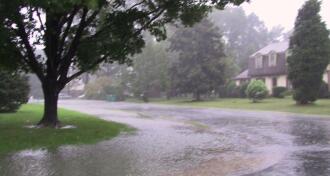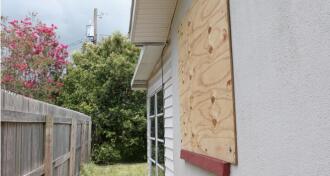North Carolinians are on high alert, tracking weather patterns and prepping their homes and other structures for potential storms.
Many know the importance of having a plan and the peace of mind that comes with owning a generator, but when it comes to windstorm insurance policies, they may be in the dark. Understanding the intricacies of these policies and mastering the art of managing an insurance claim can make all the difference in the aftermath of a storm.
This article provides essential tips for handling windstorm insurance claims, excluding flood insurance claims. For information on flood insurance, read our article on NFIP flood insurance policies.
Tip 1: Know Your Insurance Coverage Ahead of Time.
Don’t wait until you need to file a claim to understand your policy. Proactively reviewing your insurance coverage before sustaining a loss is a critical step to ensuring you have adequate protection against potential wind damage. Here are key questions to discuss with your insurance agent:
- Do I have a "replacement value" or an "actual cash value" policy? A replacement value policy pays for the entire cost of repairing damage caused by a windstorm up to the policy limit. An actual cash value policy pays less than that.
Under both types of policies, the insurance company assesses the amount of "depreciation" applicable to the damaged building components, which increases the older the materials are. Under a "replacement value" policy, the insurance company will initially withhold the "depreciation" amount and then will disburse that amount as repairs are made/completed by your contractor. That is, the company will disburse the "depreciation" amount under a "replacement value" policy once the owner has incurred the repair costs.
Under an "actual cash value" policy, "depreciation" is withheld and will not be paid. Actual cash value policies are typically cheaper and may be an excellent fit for certain owners. However, owners should understand that with an actual cash value policy, the insurance afforded is unlikely to cover the out of pocket repair costs necessary to correct sustained damage. The difference in these types of policies is particularly noticeable in older homes or structures, where "depreciation" can be significant.
Here is a table highlighting the key differences between replacement value and actual cash value insurance policies:
Feature Replacement Value Insurance Actual Cash Value Insurance Coverage Full cost of repairing or replacing damaged property (up to the purchased policy limit) Cost of repairing or replacing damaged property minus depreciation Payout Covers the total expense needed to restore the property to its original condition (up to the purchased policy limit) Covers the depreciated value of the property at the time of loss
Depreciation Initially withheld but reimbursed after repairs are made and the expense is incurred/paid for out of pocket Deducted from the payout and not reimbursed Policy Premium Higher premium due to comprehensive coverage Lower premium due to reduced coverage Suitable For Owners seeking protection against actual repair costs Owners looking for more affordable insurance with less comprehensive coverage Impact on Older Properties Less affected by age-related depreciation Often significantly affected by age-related depreciation
- Do I have "ordinance and law" or "increased cost of construction" coverage? If so, how much do I have? When homes or buildings are damaged, they often must be repaired in accordance with the most current version of the applicable Building Code. Sometimes this means a minor change, like an updated type of wiring. But sometimes this means an entirely new design. "Ordinance and law" or "increased cost of construction" is a pot of money within an insurance policy, typically in addition to the policy limit for the covered dwelling/structure(s) that applies specifically to the cost of complying with current and applicable Building Codes. This additional coverage is particularly important for older homes and buildings where existing construction is likely out of compliance with modern Building Codes.
- Do I have a "mold" sublimit? If so, what is the amount of the sublimit? Windstorm damage often means water intrusion into homes and buildings, caused by things like a falling tree, a broken window from debris, or compromised shingles. Water intrusion may mean mold and often does in North Carolina's warm, humid climate. Some windstorm policies have modest sub-limits, such as $5,000, on how much the insurer is required to pay to clean and remove or remediate mold damage. For significant damage, this limit may not be enough. Having a mold sublimit may mean that the home or building owner is on the hook for a portion of the damage.
- Do I have "loss of use" or "business interruption" coverage? For some unfortunate owners, damage to the home or building means that they must find somewhere else to live or operate their business while the damage is remediated or repair work is done.
For homeowners, some policies provide an additional "loss of use" coverage amount, in addition to the policy limit, that pays for temporary replacement housing while needed repairs are occurring. For business owners, some policies provide "business interruption" and/or "extra expense" coverage that may pay for a replacement business location, for amounts of revenue that were lost due to work stoppages, and the cost of atypical (for the business) expenses incurred.
Tip 2: Engage a Contractor Who Can Effectively Estimate Your Damage.
After storm damage, the insurance company will send an adjuster to assess what has occurred and what (they assert) it will cost to correct the damage. It is difficult, if not impossible, for the average home or building owner to know whether the insurance company's adjuster has accounted for all of the resulting damage and corresponding work that must be done and whether the adjuster has fairly priced that work.
It is advisable for owners to engage a qualified contractor to do the same thing the insurance company's adjuster is doing: assess the damage and provide an estimate of the repair cost. This estimate will assist the owner in determining whether the insurance company's adjuster has omitted necessary work, has overlooked applicable Building Code requirements that must be complied with, or has shorted the market price to complete the required work.
Look for a contractor who you trust, is responsive to you, is capable of the scope of necessary repairs, is insured, and holds any necessary licenses to do the work. Beyond those important traits, it is helpful to have a contractor who is familiar with, and who can utilize, the same software (often a program called Xactimate) that insurance adjusters use to create their estimates. Having a contractor who can create (or at least interpret) a Xactimate estimate helps you compare apples to apples against the insurance company's estimate, and allows you to pinpoint where your contractor has identified additional work or higher pricing than what the insurance adjuster's estimate reflects.
Tip 3: Public Adjusters Can Be a Key Resource on Significant Claims.
A public adjuster is a licensed professional who works for you rather than the insurance company to perform the same type of assessment and estimation work that an insurance adjuster does for the insurance company. Public adjusters can be helpful on claims that involve significant damage and where there is disagreement between the owner and the insurance company over the amount to be paid or the necessary scope of work. In those cases, public adjusters create professional estimates and can highlight shortfalls or overlooked items not accounted for in the insurance company adjuster's estimate.
Public adjusters charge for their work, typically at a set percentage (10% is not uncommon) of the amount of money the insurance company agrees to pay on the insurance claim from the time of their engagement. In considering whether to hire a public adjuster, an owner should consider whether the amount in dispute justifies the expense of hiring that professional. As part of that consideration, an owner should carefully review the public adjuster's terms of engagement to understand the financial investment involved in bringing on a public adjuster to the owner's team.
Tip 4: When Can an Attorney Be Helpful on an Insurance Claim?
Disputes with your insurance company can sometimes arise during the course of a claim. Sometimes insurance claims languish for no good reason. Sometimes insurance companies quote hard-to-understand and boilerplate policy language as a justification for not paying all, or some part, of a claim. Sometimes insurance companies invoke policy language to conduct an "Examination Under Oath," which is functionally similar to a sworn deposition and is held before a court reporter or they may place the claim in appraisal. Here are a few examples of when an attorney may assist with an insurance claim:
- Coverage Denial: The insurance company tells you that a meaningful portion of your claim is not covered under the policy. An attorney can assist in reviewing the insurance company's position to vet whether the policy language supports its position and to advise the owner whether there are grounds to challenge its position. Those challenges might range from informal communication to sending formal demand letters to initiating litigation.
- Disagreement Over Repair Costs: The insurance company refuses to pay a meaningful amount that you believe is due and owing on your claim due to a disagreement over the necessary scope of work or overpricing. An attorney can advise the owner whether to retain a professional, such as a contractor or public adjuster, to evaluate the shortcomings in the insurance company's estimate. If the dispute cannot be resolved, the attorney can advise the owner whether a formal challenge, such as a lawsuit, is warranted.
- Requests for Examination Under Oath: The insurance company demands that you be questioned under oath about your claim and/or that you submit documents to them. The insurance company has the right to examine an owner under oath about the facts and circumstances of the claim and to require an owner to provide relevant documents. The making of these requests can be indicative of an underlying problem or concern by the insurance company. An attorney can help prepare the owner for the examination, advise on supplying the insurance company with documents pertinent to the claim, and help determine how best to navigate the underlying issue(s) that may be at the root of the insurance company's requests.
- Delayed Claims: The insurance company appears to be ignoring the claim. Paying attention to the level of attention (or lack thereof) an owner is getting from an insurance company is crucial. Property claims, particularly sizeable ones, can take what understandably seems to an owner like an exorbitant, unreasonable amount of time. If enough time goes by without resolution of the insurance claim, the owner runs the risk that the legal window of time in which to file a lawsuit against the insurance company may expire. If an insurance claim drags without a response from the insurance company, an attorney can help by providing a more formal means of communication to the insurance company with the goal of moving the insurance claim forward while monitoring any applicable legal deadlines for the owner to file suit. If the inattention continues, an attorney can advise the owner of the available options.
- Appraisal Process: The insurance company demands "appraisal." Either the insurance company or the owner may invoke a process called "appraisal" to help resolve certain disagreements in the insurance claim concerning the amount of the loss. If the insurance company invokes the appraisal process, an attorney can help the owner navigate that process.
Ward and Smith's attorneys have significant experience assisting clients with all types of issues and disputes that arise during a windstorm insurance claim. Our dedicated Natural Disaster + Recovery team and our Insurance Consulting and Recovery practice group devote a significant portion of their law practice to these matters. Please contact us if we may be of assistance to you regarding an insurance claim.









